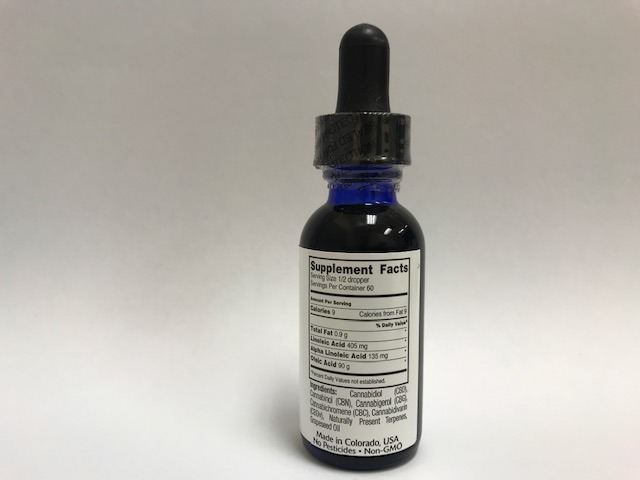CBD in Managing Arthritis Symptoms

Arthritis is a common condition that affects millions of people worldwide. Characterized by inflammation of the joints, it leads to pain, stiffness, and reduced mobility. Traditional treatments often include anti-inflammatory medications and pain relievers, but many individuals seek alternative options due to side effects or insufficient relief. One such alternative that has garnered significant attention in recent years is cannabidiol (CBD), a non-psychoactive compound derived from the hemp plant. This post explores the potential role of CBD in managing arthritis symptoms and the scientific research backing its use.
Understanding Arthritis
Arthritis encompasses over 100 different types, with osteoarthritis and rheumatoid arthritis being the most prevalent. Osteoarthritis is a degenerative joint disease that occurs when the cartilage cushioning the joints wears down over time, leading to pain and stiffness. Rheumatoid arthritis, on the other hand, is an autoimmune condition where the immune system mistakenly attacks the synovium, the lining of the membranes that surround the joints, resulting in inflammation and damage.
Symptoms of arthritis can vary but commonly include:
- Joint pain and tenderness
- Swelling
- Reduced range of motion
- Fatigue
- Warmth and redness around the affected joints
The impact of arthritis extends beyond physical symptoms, often affecting mental health and quality of life. As a result, many individuals are looking for effective ways to manage their symptoms and improve their overall well-being.
What is CBD?
CBD is one of over 100 cannabinoids found in the hemp plant. Unlike THC (tetrahydrocannabinol), CBD does not produce a “high,” making it an appealing option for those seeking relief without psychoactive effects. CBD interacts with the body’s endocannabinoid system (ECS), which plays a crucial role in regulating various physiological processes, including pain sensation, inflammation, and immune response.
The ECS consists of cannabinoid receptors (CB1 and CB2), endocannabinoids produced by the body, and enzymes that break them down. CBD primarily interacts with CB2 receptors, which are found in the immune system and are involved in regulating inflammation and pain.
The Science Behind CBD and Arthritis
Anti-Inflammatory Properties
One of the key reasons CBD is being investigated for arthritis management is its potential anti-inflammatory properties. Research has shown that CBD can inhibit the production of pro-inflammatory cytokines and increase the levels of anti-inflammatory cytokines. This dual action may help reduce inflammation in the joints, providing relief to arthritis sufferers.
A study published in the European Journal of Pain found that CBD applied topically reduced pain and inflammation in arthritic rats. While animal studies do not always translate to human results, they provide a promising foundation for further research.
Pain Relief
CBD’s analgesic properties may help alleviate pain associated with arthritis. A review in the Journal of Pain Research concluded that CBD effectively reduced pain in various conditions, including arthritis. By interacting with the ECS, CBD may alter the way the brain and nervous system perceive pain, providing much-needed relief to those suffering from chronic pain.
Improving Sleep and Mood
Chronic pain and inflammation often disrupt sleep and can lead to anxiety or depression. CBD has been studied for its potential to improve sleep quality and reduce anxiety, which can further benefit those managing arthritis. By promoting relaxation and reducing stress, CBD may help improve overall quality of life for arthritis patients. For more insights and further information about the role of CBD in managing arthritis symptoms, be sure to visit Fight Matrix to learn more.

Methods of Using CBD for Arthritis
There are several ways to use CBD, and the best method may vary depending on individual preferences and symptoms. Here are some common methods:
1. Topical Applications
CBD-infused creams and balms can be applied directly to the affected joints. This localized application may provide targeted relief without systemic effects. Many users report positive experiences with topical CBD, finding it effective for reducing localized pain and inflammation.
2. Oral Ingestion
CBD oils, capsules, and edibles are popular options for those seeking systemic relief. When taken orally, CBD can have a longer-lasting effect, although it may take longer to feel the benefits. It’s important to start with a low dose and gradually increase it to find the optimal amount for individual needs.
3. Vaping or Smoking
Inhaling CBD via vaping or smoking provides rapid relief, as it enters the bloodstream quickly. However, this method may not be suitable for everyone, especially those with respiratory issues. Additionally, the long-term effects of vaping are still being studied.
Considerations and Side Effects
While CBD is generally considered safe, it’s essential to approach its use with caution. Some potential side effects include:
- Fatigue
- Diarrhea
- Changes in appetite
- Interactions with other medications
It’s crucial to consult with a healthcare professional before starting any new treatment, especially for those already taking medications for arthritis or other conditions. Additionally, ensuring the quality of CBD products is vital; consumers should look for third-party lab testing and transparent sourcing to guarantee purity and potency.
Conclusion
The potential role of CBD in managing arthritis symptoms is an exciting area of research. While preliminary studies show promise regarding its anti-inflammatory and pain-relieving properties, more rigorous clinical trials are needed to fully understand its efficacy and safety. For individuals seeking alternative options to manage their arthritis symptoms, CBD may offer a supportive role alongside traditional treatments. As always, it’s essential to consult with a healthcare professional before incorporating any new supplement into your routine, ensuring that it aligns with your overall treatment plan.
As the dialogue around CBD continues to evolve, it may pave the way for more comprehensive approaches to managing arthritis and improving the quality of life for those affected by this challenging condition.


 SEO for E-Commerce Platforms
SEO for E-Commerce Platforms  Air Conditioning Repairs You Should Know About
Air Conditioning Repairs You Should Know About  Sea Moss into Your Daily Meals
Sea Moss into Your Daily Meals  Data Storage for Personalized Medicine
Data Storage for Personalized Medicine  Tips for Maintaining Your Plumbing System
Tips for Maintaining Your Plumbing System  Understanding Distributed Computing
Understanding Distributed Computing